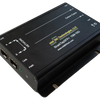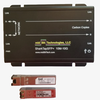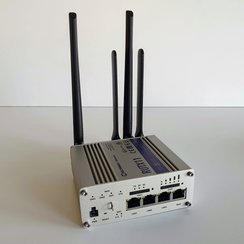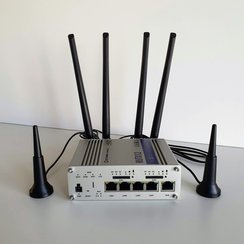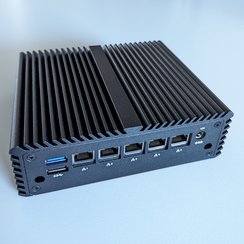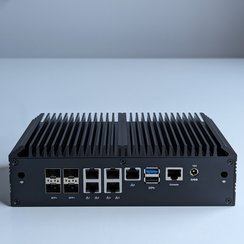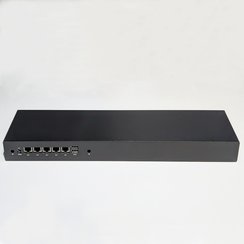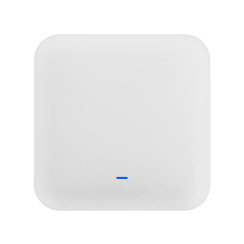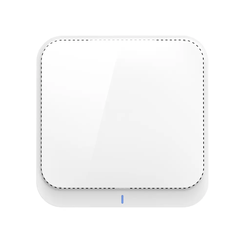SharkTapSFP+ network sniffer
6 672 SEK
What is a "Network Sniffer"?
A network sniffer, also known as a network Test Access Port (TAP), allows the user to view the data on an ethernet link. The SharkTap sniffers support 10, 100, and 1000Base-T links, which use copper cables. Packets flowing through the NETWORK ports are duplicated to the TAP port. The TAP port is typically connected to a PC running Wireshark. or similar software. The SharkTaps leverage the economies of scale of standard switch chips, allowing me to provide serious test equipment at a very attractive price. The switch chips in the SharkTap family support "port mirroring". The SharkTaps are what CISCO calls a SPAN port. They are sometimes also called aggregating taps since both NETWORK ports are mirrored to one TAP port. https://en.wikipedia.org/wiki/Port_mirroring All SharkTaps also have "auto-MDIX" which means that you never have to worry about CAT-5 crossover cables. All ports will work with either a straight-through or crossover cable.
The SharkTapBYP is ideal when you need the extra security of a fail-safe link but don't need a high-end carrier-grade TAP. The SharkTapBYP is ideal for embedded data acquisition applications where the SharkTap will be installed permanently.
- The SharkTapSFP+ is a network breakout for SFP and SFP+ module based ethernet links.
- SFP/SFP+ ethernet modules support a wide range of fiber and copper media. (No modules are included)
- Data is repeated between the two NETWORK ports with only the delay introduced by the SFP+ modules. The data received on NETWORK ports A & B are also duplicated to 'Carbon Copies' A & B.
- All sockets are hot-plug, and the 'Carbon Copies' modules can be installed or removed without affecting the NETWORK connections
Simple plug and play
- Supports Direct Attach cables (DAC), which can be thought of as extending your equipment's SFP socket to the SharkTap.
- Typically used with capture and analysis software such as Wireshark: wireshark.org
- The USB port provides a CDC/ACM device (a virtual UART), which can be accessed with putty or teraterm or similar terminal emulator software. This terminal interface displays the names of the installed modules, and provides a simple API mode that allows external programs to access all the i2c and gpio functions of each module.
- Powered by USB B (printer) cable (included). Power draw is primarily dependent on your choice of SFP modules, but we recommend USB3 source (3 Amps)
- The SharkTap includes buffering and logic to prevent a defective module from affecting the others
- You can mix and match modules, as long as all modules are SFP or all SFP+. You can't mix 1G and 10G baseband interfaces, but you can use the SharkTap as a media convertor (copper to fiber, for example).
Specification
- Supports SFP and SFP+ modules as specified by INF-8074 etc. (https://www.snia.org/technology-communities/sff/specifications)
- Dimensions (including tabs): 98mm W x 120mm L x 27mm H
- Draws approximately 10mA @ 5V, plus whatever the modules draw. Can supply 1A@3.3V to each module
- Temperature range: 0 to 70 Celcius. Nominal range - not formally guaranteed, and depends on modules
- Warranty: 30 day return, 1 year defects in parts and workmanship

